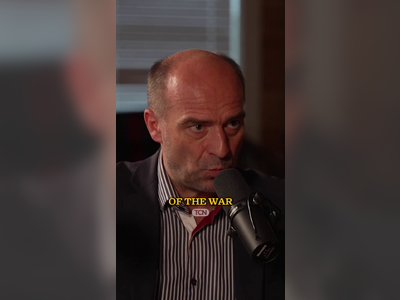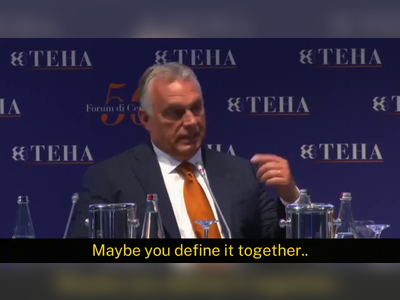Press Freedom Concerns Rise Over Confidentiality Clauses in French Media
Reporters Without Borders highlights the impact of non-disparagement clauses imposed on journalists working for media companies owned by Vincent Bolloré.
Reports have emerged regarding the implications of confidentiality and non-disparagement clauses on approximately 500 former journalists from media outlets owned by billionaire Vincent Bolloré.
The organization Reporters Without Borders (RSF) has expressed concerns, arguing that such clauses severely restrict journalists' freedom of expression, limiting their ability to critique or investigate issues related to their previous employers.
These clauses reportedly began to be implemented in 2016, following Bolloré's acquisition of Canal+ and its news channel iTélé, which has since been rebranded as CNews.
Additionally, his media footprint extends to Europe 1 radio, the Paris Match magazine—now sold—and the Journal du dimanche (JDD).
Journalists who chose to leave these media organizations had the option of receiving severance pay; however, this was often contingent upon their acceptance of confidentiality agreements.
Several journalists disclosed to media representatives that these provisions were non-negotiable.
When approached for comments, Canal+ and Lagardère News, the parent company of JDD, declined to provide statements on the allegations.
Prisma Media, the largest French magazine publishing group under Vivendi—Bolloré's parent company—countered claims regarding the timeline of clause implementations, stating that there was no correlation between these legal stipulations and Vivendi's acquisition of Prisma Media in 2021. They emphasized that no requests for such confidentiality clauses had been made by Vivendi towards Prisma Media.
RSF acknowledges that confidentiality clauses are standard in employment law; however, the organization contests their indefinite nature in the journalism sector, warning that they pose a significant threat to the public's right to information.
Thibaut Bruttin, RSF's Director-General, highlighted these potential dangers.
In a notable legal precedent, investigative journalist Jean-Baptiste Rivoire was ordered at the end of February 2024 to pay over €150,000 to Canal+ for violating a non-disparagement clause.
This ruling stemmed from comments he made in a 2021 documentary produced by RSF, which examined the operations of Bolloré's media empire.
Following his condemnation, Rivoire decried the existence of such “silence clauses.” In a response, Maxime Saada, the president of Canal+, stated that Rivoire had sought to secure an indemnity exceeding the standard severance plan, which was associated with non-disparagement terms.
The organization Reporters Without Borders (RSF) has expressed concerns, arguing that such clauses severely restrict journalists' freedom of expression, limiting their ability to critique or investigate issues related to their previous employers.
These clauses reportedly began to be implemented in 2016, following Bolloré's acquisition of Canal+ and its news channel iTélé, which has since been rebranded as CNews.
Additionally, his media footprint extends to Europe 1 radio, the Paris Match magazine—now sold—and the Journal du dimanche (JDD).
Journalists who chose to leave these media organizations had the option of receiving severance pay; however, this was often contingent upon their acceptance of confidentiality agreements.
Several journalists disclosed to media representatives that these provisions were non-negotiable.
When approached for comments, Canal+ and Lagardère News, the parent company of JDD, declined to provide statements on the allegations.
Prisma Media, the largest French magazine publishing group under Vivendi—Bolloré's parent company—countered claims regarding the timeline of clause implementations, stating that there was no correlation between these legal stipulations and Vivendi's acquisition of Prisma Media in 2021. They emphasized that no requests for such confidentiality clauses had been made by Vivendi towards Prisma Media.
RSF acknowledges that confidentiality clauses are standard in employment law; however, the organization contests their indefinite nature in the journalism sector, warning that they pose a significant threat to the public's right to information.
Thibaut Bruttin, RSF's Director-General, highlighted these potential dangers.
In a notable legal precedent, investigative journalist Jean-Baptiste Rivoire was ordered at the end of February 2024 to pay over €150,000 to Canal+ for violating a non-disparagement clause.
This ruling stemmed from comments he made in a 2021 documentary produced by RSF, which examined the operations of Bolloré's media empire.
Following his condemnation, Rivoire decried the existence of such “silence clauses.” In a response, Maxime Saada, the president of Canal+, stated that Rivoire had sought to secure an indemnity exceeding the standard severance plan, which was associated with non-disparagement terms.











